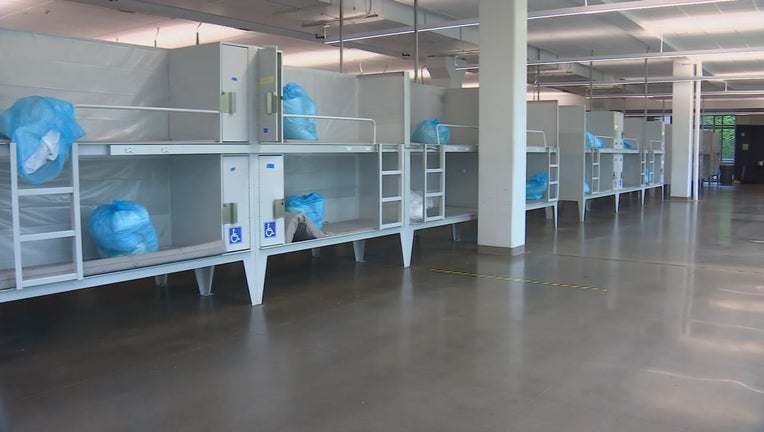New St. Paul shelter revamps operations to protect those in need during pandemic

ST. PAUL, Minn. (FOX 9) - When the brand new Dorothy Day campus in St. Paul fully opened last year, the design came from decades of experience to serve as many as possible as well as possible.
But, in eight weeks, the COVID-19 pandemic has forced the shelter's support staff to re-evaluate everything.
"So our biggest challenge right now is to de-densify this space," explained Catholic Charities Director Christine Michels while taking FOX 9 on a tour of the facilities.
"Homelessness was increasing at record rates and at record numbers before COVID," added Catholic Charities CEO Tim Marx. "COVID is only making it worse and we have less space."
There are temperature checks for everyone that comes in, about a thousand checks each day, and residents get wristbands if they're clear.
In the overnight shelter space, top bunks are no longer used. plastic sheeting is used to prevent the virus from spreading if someone has it.
"There are metal holes to promote airflow and circulation which in this age we want to stop and prevent," said Michels.
It’s cut-down capacity and they’d like to cut more.
"We’ve reduced by about 100 individuals right now so we have a little bit more work to do," said Michels.
To compensate, those most at risk are put in hotel rooms.
"So, we’ve been able to move people out of our shelter, particularly the vulnerable, into local hotels which is good for them," explained Marx. "They’re getting business and good for our clients."
In the cafeteria, meal times extended so they can put three people at tables instead of six. In the kitchen, food is prepared in individual servings -- one of so many things that take more time and cost a lot more money.
"Lots and lots of cleaning and hand washing, all of which is costing us about a million dollars a month," added.
Meantime, confirmed cases are isolated in unused Catholic Charities office space across the street. Even when the crisis fades, it will change how they do things and re-define, what they thought two months ago, was state of the art service.
"COVID has caused us to re-invent so many things to be able to keep people safe and to keep the community safe and to keep people fed and housed and sheltered as best we can," said Marx.

